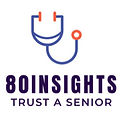Excerpts From The State of New York & The FTC vs. Quincy Biosciences
- Ken Rygler
- Jan 9, 2017
- 2 min read
To substantiate their claims that Prevagen improves memory, is clinically shown to improve memory, improves memory within 90 days, is clinically shown to improve memory within 90 days, reduces memory problems associated with aging, is clinically shown to reduce memory problems associated with aging, provides other cognitive benefits, and is clinically shown to provide other cognitive benefits, Defendants primarily rely on one double-blind, placebo-controlled human clinical study using objective outcome measures of cognitive function. This study, called the Madison Memory Study, involved 218 subjects taking either 10 milligrams of Prevagen or a placebo. The subjects were assessed on nine computerized cognitive tasks, designed to assess a variety of cognitive skills, including memory and learning, at various intervals over a period of ninety days. The Madison Memory Study failed to show a statistically significant improvement in the treatment group over the placebo group on any of the nine computerized cognitive tasks.

After failing to find a treatment effect for the sample as a whole, the researchers conducted more than 30 post hoc analyses of the results, looking at data broken down by several variations of smaller subgroups for each of the nine computerized cognitive tasks. This methodology greatly increases the probability that some statistically significant differences would occur by chance alone. Even so, the vast majority of these post hoc comparisons failed to show statistical significance between the treatment and placebo groups. Given the sheer number of comparisons run and the fact that they were post hoc, the few positive findings on isolated tasks for small subgroups of the study population do not provide reliable evidence of a treatment effect. Nevertheless, Defendants widely touted the Madison Memory Study in their advertising. For example, the chart below appeared in the product labels for the Prevagen Products and Defendants’ TV ads and website, prevagen.com. It indicates that a “double- blinded, placebo controlled study” showed dramatic improvement in recall tasks when, in fact, the results for the specific task referenced in the chart showed no statistically significant improvement in subjects taking Prevagen compared to subjects taking a placebo. In addition, Defendants eliminated from the chart one of the four data points in the study – day 60. At day 60, the recall task scores of subjects taking Prevagen declined from day 30, and were slightly worse than the recall task scores of subjects in the placebo group.
Defendants’ claims that their product improves memory and cognition rely on the theory that the product’s dietary protein, apoaequorin, enters the human brain to supplement endogenous proteins that are lost during the natural process of aging. Defendants developed their product and created their marketing campaign based on this theory. Defendants, however, do not have studies showing that orally-administered apoaequorin can cross the human blood brain barrier and therefore do not have evidence that apoaequorin enters the human brain. To the contrary, Defendants’ safety studies show that apoaequorin is rapidly digested in the stomach and broken down into amino acids and small peptides like any other dietary protein.
Credit: Federal Trade Commission
